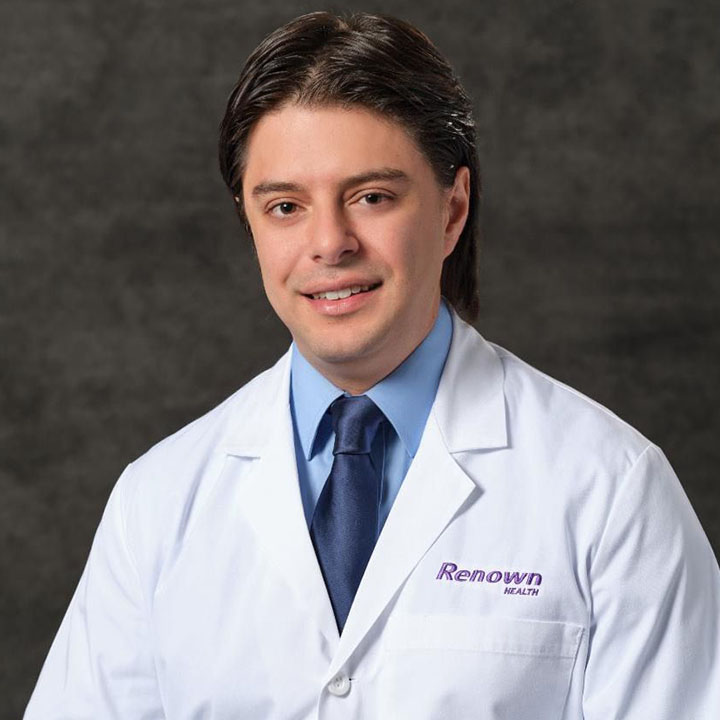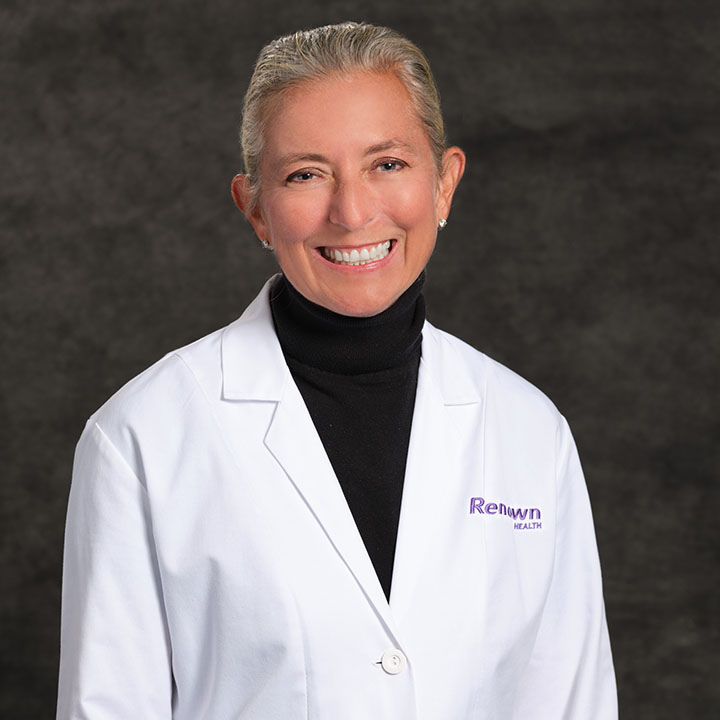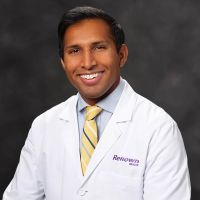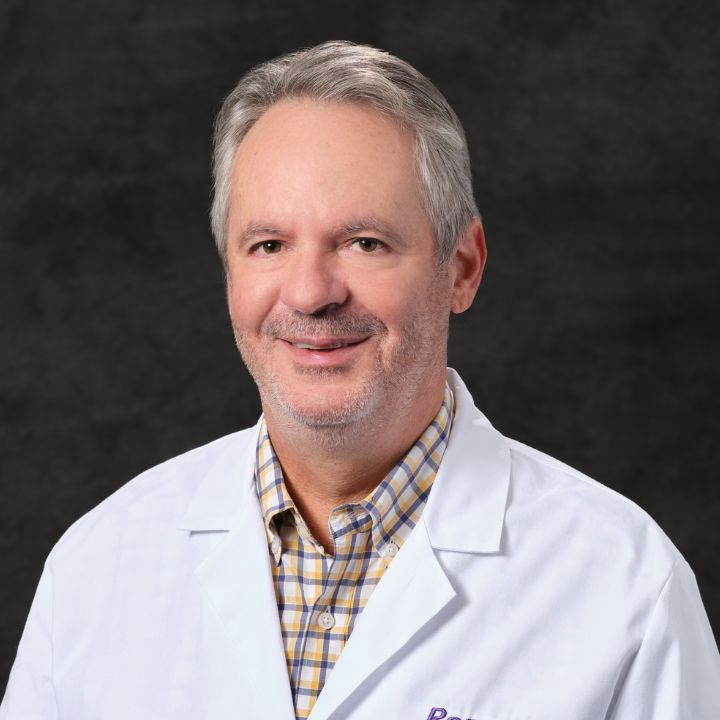Lung Cancer Alliance (LCA) Screening Center of Excellence
Renown Regional Medical Center has been named a Screening Center of Excellence by The Lung Cancer Alliance (LCA) for our ongoing commitment to responsible lung cancer screening.Prevention
Most lung cancer cases stem from a history of smoking tobacco, but there are other known causes. You can take steps to eliminate some of the causes from your lifestyle and environment, such as:- Tobacco smoke: The most critical step you can take to prevent lung cancer is to avoid tobacco smoke altogether, including secondhand smoke.
- Radon: This chemical element occurs naturally in the environment. It’s odorless and colorless, which means testing is the only way to determine if it’s present in your home. Radon testing kits and radon mitigation systems are available at retailers. Radon test kits are available through the Nevada Radon Education Program.
- Asbestos: This fibrous mineral causes cancer and other diseases, including mesothelioma and asbestosis. If you suspect your home contains asbestos, contact a local asbestos testing and removal service.
- Diesel exhaust: Avoid exposure to diesel fumes. The World Health Organization found that diesel exhaust causes not only lung cancer but also other cancers.
- Chemical exposure: Always take the necessary steps to protect yourself from inhaling harmful particles, fumes, and gasses by wearing appropriately rated masks or respirators.
Get Screened
Breast Cancer Screening - 3D Mammogram or Total Breast Ultrasound
775-982-8100Colorectal Cancer Screening
775-982-4000Gynecologic Cancer Screening
775-982-4000Lung Cancer Screening
775-982-2360Prostate Cancer Screening
775-982-4000Risk Factors
Lung cancer is the leading cause of cancer death in the United States, and around 80 percent of those deaths are attributed to smoking. While causes of lung cancer can be varied, people at the highest risk of developing lung cancer are those with a history of smoking tobacco.You should be screened for lung cancer if you meet all of the following risk factors:
- You are between 55 and 77 years old.
- Do not have any signs or symptoms (diagnostic testing is recommended for those with signs or symptoms).
- You've never had lung cancer.
- You currently smoke or quit less than 15 years ago.
- Are or were a heavy smoker (one pack per day for 30 years, or two packs per day for 15 years).
If you meet all of the risk factors, ask your doctor for a referral to Renown's Lung Cancer Screening Program. You will then meet with an oncology nurse practitioner to review the risks and benefits of screening. Studies have shown that screening those at high risk with CT scans before symptoms appear can find lung cancer early when it is easier to treat and more likely to be cured.
Screening
Low-Dose CT Scan
Low-dose computed tomography (LDCT) has proven to find lung cancer at its earliest stages. This scan uses roughly a quarter of the radiation as a normal CT scan. During the screening, you will lie on your back with your hands above your head. Then, your doctor will ask you to hold your breath for a few seconds while they take a series of pictures. The whole process takes about 30 minutes, and you do not need to do anything special to prepare for the screening.
Related Providers
Mauricio Perez-Davila, MD
Oncology
Madeline Hardacre, MD
Oncology
Harry Menon, DO
Internal Medicine
Jennifer Sutton, MD
Radiation Therapy
Randall Zuckerman, MD
Surgery
Classes & Events
-
03Apr
-
07Apr
-
07Apr





